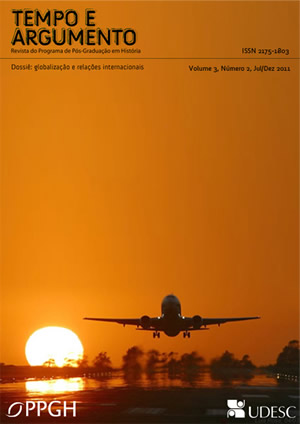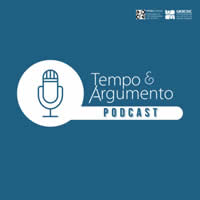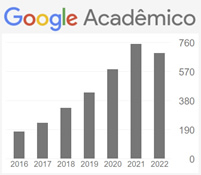Reviewing History schoolbooks: cultural diplomacy action to foster peace
DOI:
https://doi.org/10.5965/2175180303022011077Keywords:
History teaching, school book, cultural diplomacy, league of nations, pan-american unionAbstract
In the post WWI scenario, moral objectives were gradually joined to civic ones in the teaching of History. The 1920s were particularly marked by a comprehensive discussion about the role of education – mainly the teaching of History – in building world peace. School books were at the heart of this debate, where educators and opposite trends were able to voice their opinions. During these debates, the role of the Intellectual Cooperation International Commission (CICI) was outstanding in the League of Nations, the goal of which was to facilitate the collaboration of intellectuals working to foster world peace within the scope of the League’s objectives. This article addresses this context, emphasizing the role of Brazil in the adoption of a valid cultural diplomacy, both for European and Latin American countries, considering the change of focus from the interests of the League of Nations to the Pan-American Union. The participation of the Foreign Relations Ministry in this process is highlighted in this study, in that it undertook to endeavor a cultural diplomacy about the History to be taught, impervious to the political instability of that period and culminating with the publication of the “Bibliography of the History of Brazil”.
Downloads
References
BARACUHY, Braz. A crise da Liga das Nações de 1926: realismo neoclássico, multilateralismo e a natureza da política externa brasileira. Contexto Internacional. Rio de Janeiro, v. 28, n. 2, p.355-397, jul. / dez. 2006. Disponível em: <http://www.scielo.br/scielo.php?script=sci_arttext&pid=S0102-85292006000200002>. Acesso em: 16 jul. 2011.
BECHET, Christophe. La révision pacifiste des manuels scolaires: les enjeux de la mémoire de la guerre 14-18 dnas l’enseignement belge de l’entre-deus-guerres. CHTP, n. 20, jan. 2008. p. 49 – 101. Disponível em: <http://www.schist.ulg.ac.be/biblio/Bechet.pdf>. Acesso em 12 de março de 2011.
CICCHINI, Marco. Un bouillon de culture pour les sciences de l’éducation ? Le Congrès international d’éducation morale (1908-1934). Paedagogica Historica, Genebra, v. 40, n. 5-6, p. 633-656, out. 2004.
CHARTIER, Roger.Cultura escrita, literatura e história. Tradução: Ernani Rosa. Porto Alegre : Artmed, 2001.
DUMONT, Juliette.Le Brésil de Vargas:entre l’Institut International de Coopération Intellectuelle et l’Union Panaméricaine. HAL: sciences de l’homme et de la societé, Paris, 2010. Disponível em: <http://halshs.archives-ouvertes.fr/view_by_stamp.php?&halsid=ikpdmun5dfm2q66f7fadoqgaa0&label=SHS&langue=en&action_todo=view&id=halshs-00494010&version=1>. Acesso em: 23 jul. 2011.
GARCIA, Eugênio Vargas. O Brasil e a Liga das Nações (1919-1926). Porto Alegre: Ed. UFRGS, 2005.
GIUNTELLA, Maria Cristina. Enseignement de l’histoire et revision des manuels scolaires dans l’entre-deux-guerres. In : BAQUÈS, M-C ; BRUTER, A. ; TUTIAUX-GUILON, N. (Org.). Pistes didactiques et chemins d’historiens: textes offerts à Henri Moniot. Paris: L’Harmattan, 2003. p. 161 – 190.
GUIMARÃES, Lúcia M. P. Da escola palatina ao silogeu: Instituto Histórico e Geográfico Brasileiro (1889-1938). Rio: Museu da República, 2007.
HOLLANDA, Guy de. Programas e compêndios de história para o ensino secundário brasileiro:1931-1956. Rio de Janeiro: INEP/ MEC, 1957.
LEITE, Juçara Luzia. Pensando a paz entre as guerras: o lugar do ensino de História nas relações exteriores. Revista Antíteses, Londrina, Ed. UEL, v. 3, p. 1-23, 2010. Disponível em: <http://www.uel.br/revistas/uel/index.php/antiteses/article/view/7925>. Acesso em 20 de jul.de 2011.
LEITE, Juçara Luzia. Intelectuais e professores pensando a paz no período entreguerras. In LEITE, Juçara Luzia; ALVES, Claudia. Intelectuais e História da Educação no Brasil: poder, culturas e políticas. Vitória: EdUFES, 2011. p. 305-334.
RENOLIET, Jean-Jacques. L'Unesco oubliée: la Société des Nations et la coopération intellectuelle (1919-1946). Paris: Publications de la Sorbonne, 1999.
SANTOS, Luís Cláudio Villafañe G. O dia em que adiaram o Carnaval: política externa e a construção do Brasil. São Paulo: Ed. Unesp, 2010.
SILVA, Alexandra de Mello e Silva. Ideias e política externa: a atuação brasileira na Liga das Nações e na ONU. Revista Brasileira de Política Internacional, v. 41, n. 2, p. 139-158, jul./ dez. 1998. Disponível em: <http://www.scielo.br/scielo.php?pid=S0034-73291998000200008&script=sci_arttext>. Acesso em: 17 jul. 2011.
UNESCO. La réforme des manuels scolaires et du matériel d’enseignement. Paris: Unesco, 1950.
Published
How to Cite
Issue
Section
License
Copyright (c) 2011 Tempo e Argumento

This work is licensed under a Creative Commons Attribution-NonCommercial 4.0 International License.
The articles published by the magazine are for free use, destined for educational purposes and not commercial. The copyrights are all granted to the magazine. The articles whose authors are identified represent the expressed opinion of its authors and not the official position of the Tempo e Argumento magazine or of the Postgraduate Program in History of the Universidade do Estado de Santa Catarina.




